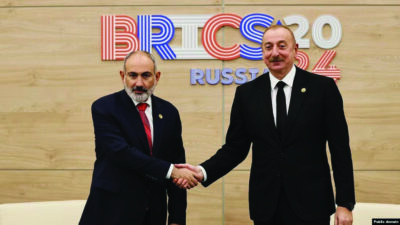By Edmond Y. Adazian
Every time a nostalgic Armenian travels to the land of his ancestors, currently occupied Turkey, he or she is surrounded by the ubiquitous volunteer guides who offer their services to hunt for hidden treasures. Amrenian Weekly’s Khatchig Mouradian, who had recently visited Diyarbekir, recounts his experience with those treasure hunters and quotes Hrant Dink who used to say: “You are digging and looking for treasures underground and you fail to realize that the real treasure was walking on the ground in these lands and was annihilated.”
My own mother once visited the house in Adana where she was born; the occupants of that house, who still did not have the deed, had inquired from her where the family had hidden their treasures, after offering lavish Turkish hospitality. Many Turks welcome the visits of the Armenians as tourists, but many more to this day look for opportunities to strike gold with the help of those nostalgic tourists. And indeed, when Armenians were being deported, it seldom crossed their minds that they were heading to a “final solution” perpetrated by Talaat Pasha. They were all led to believe that they were being subjected to some temporary measure, and that they would return to their towns and homes at the end of the war. Thus, they either buried their treasures or left them with their trusted Muslim friends, like many Armenians and Greeks featured in Kemal Yalçin’s books.
Recently a story emerged in Switzerland about six tons of gold, shipped from historic Armenia to Geneva to be deposited at the Credit Suisse Bank, which refuses to release the treasure to a Turkish family who claims ownership.
The news first broke in the Turkish newspaper, Hurriyet, on October 17. A commentary about the case also appeared in the Turkiye newspaper by Prof. Cagri Erhan, who, rather than questioning the provenance of the treasure, questions the Credit Suisse Bank’s motives for refusing to give the gold to a businessman from Elazig (the historic Armenian city of Kharpert) named Sayid Ali Bayraki.








